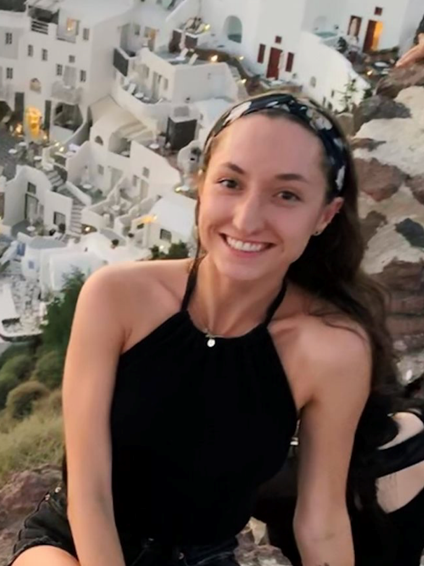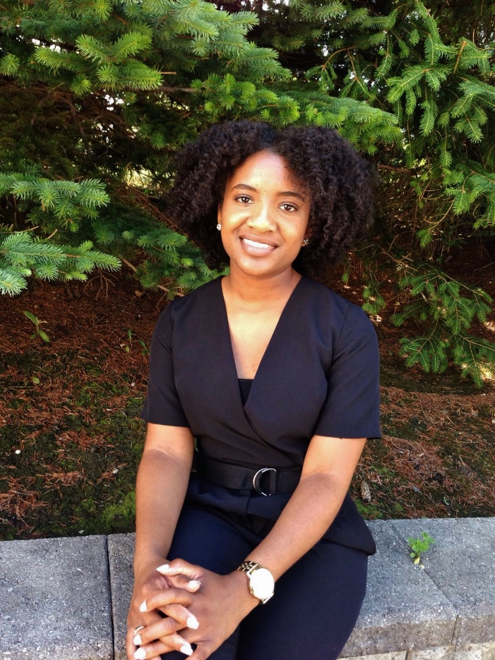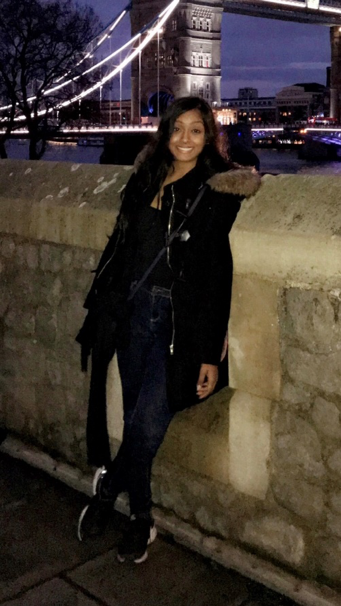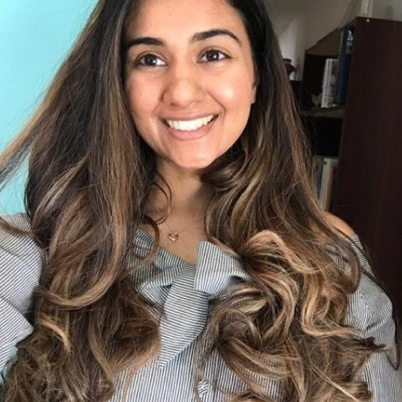Emerging MiNDS: Catching up with some of 2018’s incoming class after one year in the Neuroscience Graduate Program
AUTHOR: Lana Vedelago
Due to the interdisciplinary nature of the Neuroscience Graduate Program, many of our students are involved in multiple research disciplines. To foster collaborations within the program and to learn more about one another’s studies, this column chronicles the research current Neuroscience students are conducting. This issue will focus on students who started the program last September and will review what they’ve been up to in the past 12 months.

Madeleine Harris
Who is your supervisor?
Dr. Andrea Gonzalez
Tell us about your main research project.
Adverse Childhood Experiences (ACEs) include experiences which took place when an individual was 18 years or younger. Typical assessments generally include 3 categories – childhood abuse, neglect, and household dysfunction. Researchers have demonstrated relationships between ACEs and a number of negative outcomes in adulthood, including increased rates of mental illness, chronic disease, and poverty. These longitudinal associations can also extend intergenerationally by influencing parent-child relationships, possibly due to the disruption of cognitive, emotional, and behavioural capacities that are essential for nurturing parenting practices.
My research project aims to examine the potential moderating roles of maternal depression and executive function on the relationship between maternal history of ACEs and parenting behaviour. To collect this information, we conduct home visits with mother-child dyads, administer questionnaires about maternal and child health, conduct a number of assessments that measure executive function, and videotape mother-child interactions. Given that safe, stable, and sensitive caregiving is foundational to healthy child development, an understanding of the underlying mechanisms that may affect these behaviours is important. By managing the factors that affect brain development early on, we can ultimately change the environment in which the developmental trajectories of children are established and prevent the ‘intergenerational cycle’ of trauma.
What are your current plans for life after the Neuroscience Graduate Program?
After my defense, I plan to celebrate with family and friends, and maybe also do some traveling! After that, I am still considering my options, but I would like to pursue a career where I am able to continue research while also working in a clinical setting.
What are some things you like to do for fun?
Outside of research, I enjoy reading, running, and spending time with my family, friends, and dog. I also love to dance and teach classes part-time at a dance school in Hamilton!
What advice would you give to incoming first-year students in the program?
Graduate school can be overwhelming and stressful at times, with upcoming deadlines and thinking about career next steps, among other things. In my first year, I learned the importance of a good work-life balance – finding time to relax, doing things that you enjoy, or maybe taking up a new hobby!

Bre-Anna King
Who is your supervisor?
Dr. Maarit Elisabet Service
Tell us about your main research project.
I am observing temporal brain oscillations in the auditory cortex using electroencephalography(EEG) in hopes of discovering synchronization/asynchronization of speech patterns onto these temporal mappings. I will be using a unique musical model to aid in this investigation examining the rhythmic tendencies in speech. This research will hopefully explain some of the individual differences presented in language development.
What are your current plans for life after the Neuroscience Graduate Program?
I hope to either pursue a post-doc or fulfill a Research Assistant/Tenure Track Assistant Professor position in academia.
Tell us a fun fact about yourself.
I love instructing piano lessons to individuals of all ages!
What are some things you like to do for fun?
I enjoy spending time with my husband; eating, walking, and chilling.
What advice would you give to incoming first-year students in the program?
Don’t stress it. And if you don’t know… you just don’t know, so ask questions!

Nirushi Kuhathasan
Who is your supervisor?
Dr. Benicio Frey
Tell us about your main research project.
Major Depressive Disorder (MDD) is one of the most prevalent mental health disorders, and it is estimated that 80% of individuals with MDD also suffer from poor sleep. In recent years, there’s been an increased interest in the use of both natural and synthetic cannabinoids as a treatment for insomnia. As such, my research investigates the use of medicinal cannabis as a treatment for insomnia in individuals with MDD. This involves taking an evidence-based approach to understanding medicinal cannabis for both its potential therapeutic effects and associated risks.
What are your current plans for life after the Neuroscience Graduate Program?
Broadly speaking, I’d like to stay in academia. I love that I’m constantly challenged and exposed to new ideas and perspectives. That being said, I have many different research interests and there’s a whole world of opportunities I would love to explore after completing the program.
What are some things you like to do for fun?
I’m a big DC comics fan and I spend a lot of my free time reading various comics and watching comic-related shows and movies (it’s a good time to be a comic fan!). I also love to listen to podcasts. In fact, I’m always up for a new podcast recommendation!
What advice would you give to incoming first-year students in the program?
Take care of yourself! Things can get very overwhelming and it’s important to prioritize yourself and your health. I also think it’s very easy to fall victim to imposter syndrome. If that’s the case, don’t be afraid to connect with your peers. We’ve all been there before and it helps to have a strong support system.

Kiran Punia
Who is your supervisor?
Dr. Iris Balodis
Tell us about your main research project.
My main research project is titled “Examining the effects of acute psychosocial stress on inhibitory control in binge eating disorder (BED)”. Individuals with BED experience a loss of sense of control toward eating, which forms an impairment in their ability to inhibit natural or habitual responses (i.e. inhibitory control). My project is novel in that it examines how this mechanism is impacted by stress, a common complaint and often a major trigger for binge episodes among individuals with BED.
What are your current plans for life after the Neuroscience Graduate Program?
I think my training so far in the Neuroscience Graduate Program has prepared me really well for a career either in industry, academia, or another career with a heavy research component. Not only have I learned academic skills but also a lot of soft skills that I think have made me a better person overall. Career-wise, I am looking into more clinically-focused programs. My immediate plans right after the Master’s program would be to take some time off and travel.
How would you describe your first year in the program in three words?
Exciting, busy, and fast!
Tell us about one of your favourite program moments so far.
Having a successful first committee meeting – all of the feedback I received for my project was positive and helpful, and everyone on my committee was really kind. This was my favourite because the meeting was something I was really nervous about!
What are some things you like to do for fun?
I am a huge foodie, so I really enjoy finding cool new restaurants to try (which Hamilton has a ton of!). I also enjoy doing different fitness classes. Right now, I am really into OrangeTheory.
What advice would you give to incoming first-year students in the program?
Be super open to meeting people! I think we have a great close-knit program and keeping an open mind is great for graduate school in general. I definitely underestimated the amount I can learn from simply interacting with my peers in classes, talks, journal clubs, and socials.